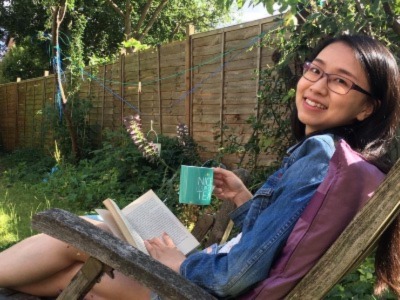Meet the Sir Howard Dalton Young Microbiologist of the Year Finalists: Zihan (Amanda) Zhu
Posted on October 3, 2022 by Microbiology Society
The Sir Howard Dalton Young Microbiologist of the Year Prize is awarded by the Society each year. The prize recognises and rewards excellence in science communication by a Microbiology Society member who is a postgraduate student or postdoctoral researcher, having gained their PhD in the last two years. Finalists shortlisted from oral and poster presentations at Annual Conference 2022 will present their research at the Society Showcase on the 5th of October. In the run up to the event, we will be meeting the finalists and getting to know a bit about each of them and their work.
Zihan (Amanda) Zhu:Third Year DPhil student in Infection, Immunity and Translational Medicine

What is the title of your talk?
Mapping inhibitory sites on the RNA polymerase of the 1918 pandemic influenza virus using nanobodies
What are your current research interests?
I am interested in how ‘seemingly non-living’ viruses out-smart their hosts to hijack cellular components and produce everything they need to take over a cell! Right now, I am focusing on how the influenza virus replication machinery works and how we can block it!
How would you explain your research to a GCSE student?
Viruses such as influenza virus, which gives flu to people around you every year, carry important viral proteins to help them survive and thrive inside a host. The number one key to being a successful virus is to copy itself. The influenza virus carries a viral polymerase to copy its RNA genome. Could we stop an influenza virus by blocking the function of the viral polymerase? Recent studies find that this polymerase needs to bind to other proteins and change shape in order to make different RNAs. In this project, we used llamas to generate very small antibody-like proteins, called nanobodies, which bind to specific sites on the viral polymerase and stop the polymerase from performing its normal functions.
If you weren’t a microbiologist what would you be?
My other two biology related options are neuroscience (memory generation and storage in particular), and animal language. If I had the talent, I’d also love to be a film producer, a novel writer (jobs that create stories and dreams for people!), or work as a guide dog trainer!

